A wide range of partners - from governments, the private sector, civil society, the UN system, and the scientific and academic communities - collaborate in the organization of the United Nations World Data Forum. A Programme Committee, composed of experts and leaders from diverse stakeholder groups, is responsible for guiding the design of the Forum's sessions across the four thematic areas. The Terms of Reference for the Programme Committee established by the HLG-PCCB can be found here.
PROGRAMME COMMITTEE
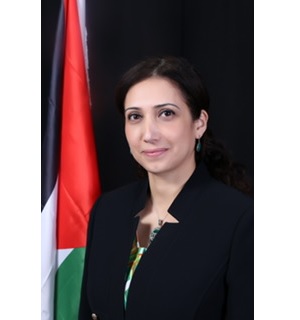
Ola Awad
President, Palestinian Central Bureau of Statistics (PCBS)
Co-chair, United Nations World Data Forum Programme Committee
Ola Awad has been the President of PCBS since 2009, leading the successful development and implementation of various statistical and non-statistical programs on the local, regional and international levels with over 20 years’ past experience working on various topics including modernization of statistics, sustainable development, gender equality, youth, labor market, the Palestinian economy, good governance, statistical literacy, management and communication.
She was the first woman elected from developing countries and the Arab region to lead the International Association for Official Statistics (IAOS). She also served as a council member in the ISI for the years (2017-2021) as well as the co-chair of the High-level Group for Partnership, Coordination and Capacity-Building for Statistics for the 2030 Agenda for Sustainable Development (HLG-PCCB) from 2020- 2023. Dr. Awad served as a co-chair of the Programme Committee for the 4th United Nations World Data Forum and currently the 5th UNWDF.
She is a board member of the Global Partnership for Sustainable Development Data (GPSDD), a member of the Advisory Board of the Harvard Data Science Review (HDSR), a Fellow of the American Statistical Association, and has been a fellow of the Aspen Institute Middle East Leadership Initiative (MELI) since 2013.
She holds a Doctorate of Business Administration from the University of Liverpool (United Kingdom), a Master of Science in Applied Statistics from Birzeit University, a Master's degree in Business Administration and Management from Boston University, and a Bachelor of Science in Economics from Birzeit University.
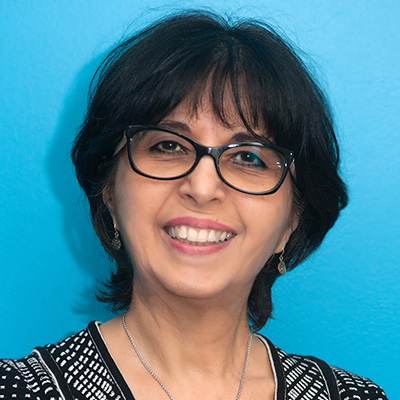
Shaida Badiee
Co-founder and Managing Director, Open Data Watch
Co-chair, United Nations World Data Forum Programme Committee
Shaida Badiee leads Open Data Watch, an NGO focused on monitoring and promoting open data in national statistical offices. She is a senior advisor to Data2X working on closing gender data gaps. She has been an active member of the UN Secretary General’s advisory group on data revolution, co-chairs the Sustainable Development Solutions Network (SDSN) Data Network and has played a key role in the startup of the Global Partnership for Sustainable Development Data (GPSDD).
She brings several decades of experience in managing global development statistics as the long-time Director of the World Bank’s Development Data Group. During her tenure, flagship global statistical products were launched such as the World Development Indicators, Global Development Finance, and the Atlas of Global Development. In 2010, she led the World Bank’s Open Data Initiative, a ground-breaking program to provide full and free access to the World Bank’s extensive statistical databases. Prior to that, she played a key role in the creation and operation of Partnership in Statistics for Development in the 21st Century (PARIS21) as well as leading international efforts to coordinate technical and financial support for statistics through initiatives like the Marrakech Action Plan.
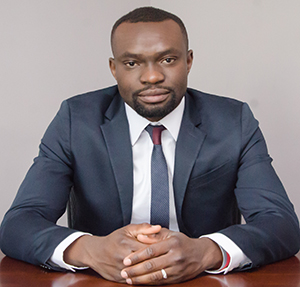
Babatunde Abidoye
Global Policy Advisor, United Nations Development Programme (UNDP)
Babatunde Abidoye is the Global Policy Advisor at the Sustainable Development Goals (SDG) Integration and has led data and analytics work at UNDP since 2020. Babatunde manages UNDP’s Data Futures Platform, an open resource that translates multidimensional data into actionable insights to support the development efforts of Governments and other practitioners. He provides technical advice on integrated policy solutions and data analytics to UNDP Country Offices, as part of UNDP’s SDG Integration service offer.
He has over 20 years of experience in economic analysis and policy regarding development issues including interventions alleviating poverty and achieving the SDGs under different scenarios of risks and uncertainties as a Senior Visiting Fellow at the London School of Economics and Political Science, a Visiting Fellow at Yale University and an Assistant Professor (Senior Lecturer) at the University of Pretoria, South Africa. He holds a Ph.D. in Economics and Statistics from Iowa State University, United States.
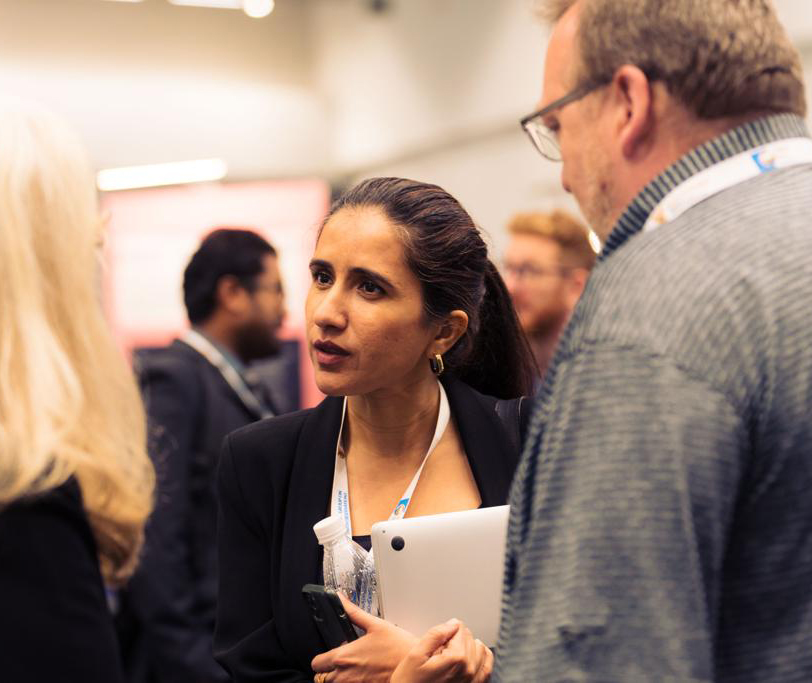
Madeeha Bajwa
Director, Group on Earth Observations (GEO Secretariat)
Madeeha Bajwa has more than 15 years of experience in working with governments, civil society, private sector, academia and international organizations at the local, national and global level on a wide range of environmental, social and governance issues. She is currently leading data-driven strategic initiatives addressing climate, biodiversity, disaster risk reduction, and urban resilience as the Chief of Programmes for the Group on Earth Observations. Her career, marked by roles in the United Nations spanning several countries, reflects a deep commitment to integrating scientific insights into policy and programmatic frameworks.
Madeeha's academic background, including an MA in Global Governance & Social Theory and a BSc Honors in Social Sciences lay the foundation for her expertise in bridging the gap between research and practical policy solutions.
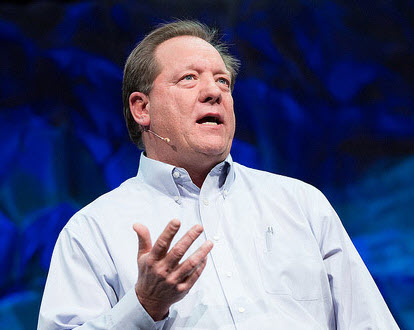
Clint Brown
Director of Product Engineering, Esri
Employed with Esri since 1983. Serves as the Director of Product Engineering. Focused on efforts to develop, capture, and share GIS-based best practices and guidance that enable people everywhere to effectively apply GIS to make a difference in our world.
Established and grew a division of hundreds of applied GIS analysts and practitioners, app developers, cartographers, educators, data scientists, writers, and storytellers – all of whom share a passion for enabling hundreds of thousands of organizations worldwide that use ArcGIS tools and technology to support the effective application of GIS in virtually all aspects of human endeavor.
Our teams also work directly with Esri’s ArcGIS Development teams, along with chief software developer Sud Menon, to build and engineer the comprehensive ArcGIS system.
Also, leads teams who manage Esri Press, envisions and builds StoryMaps, the Living Atlas of the World, and Learn ArcGIS. Collectively, these teams provide guidance on best GIS practices, and most recently lead and provide vision for the implementation of Community and Collaborative GIS.
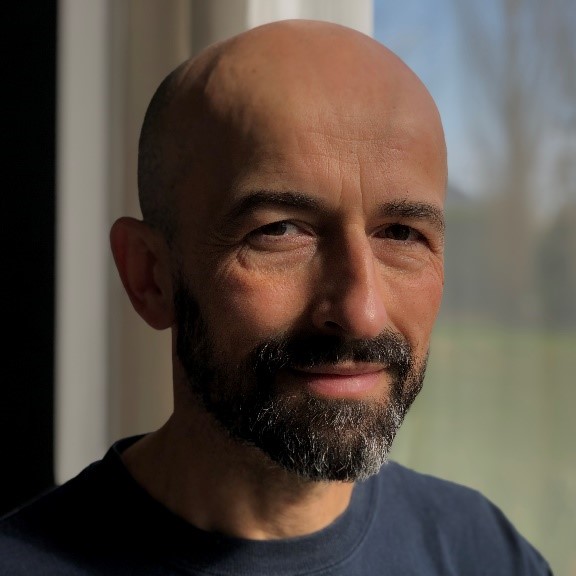
Javier Bussi
Director & Professor, School of Statistics, Facultad de Ciencias Económicas y Estadística, Universidad Nacional de Rosario
Javier Bussi is a senior member of the School of Statistics. He has worked in the school since 1993 and has held various positions, including teaching assistant, Adjunct Professor, and Associate Professor. He has worked in various fields in statistics, including Clinical Trials, Time Series, and Official Statistics. He teaches courses in Non-Parametric Statistics, Econometrics and Time Series Analysis, both at undergraduate and graduate levels. Currently his research interests are Statistical Disclosure Control and Non-Parametric Methods.
He holds a degree in Statistics from the National University of Rosario (Licenciado en Estadística) and a Master´s degree in Applied Statistics from the University of Michigan.
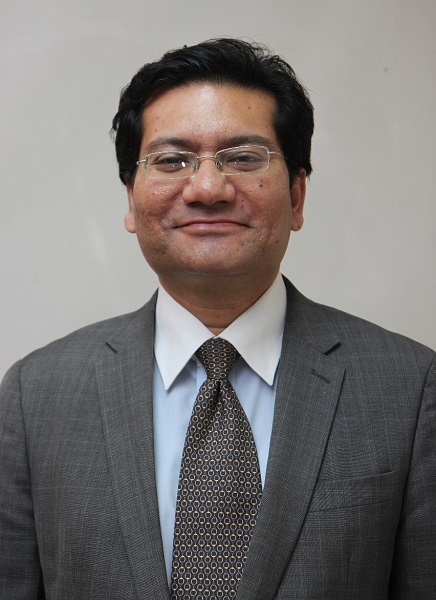
Anir Chowdhury
Policy Advisor, Aspire to Innovate (a2i) Programme, ICT Division/Cabinet Division/UNDP Bangladesh
Anir Chowdhury as a Policy Advisor to the a2i Programme leads the formation of an innovative whole-of-society ecosystem in Bangladesh through massive technology deployment, extensive capacity development, integrated policy formulation, whole-of-government institutional reform, and an Innovation Fund. His work on innovations in the public service sphere has resulted in replicable models of service delivery decentralization, public-private partnerships, and transformation of a traditional bureaucracy into a forward-looking, citizen-centric service provider.
He is a regular speaker at international conferences, addressing topics such as public service innovation and reform, digital financial inclusion, civil registration and digital identity management, Sustainable Development Goals (SDGs), youth and community empowerment, educational transformation, public-private partnerships, and South-South Cooperation.
He is also a member of the Prime Minister’s National Digital Task Force, Education Minister’s National ICT in Education Task Force, UNESCAP Regional Steering Group for Civil Registration and Vital Statistics (CRVS), Co-Founder and Board Member of South-South Network for Public Service Innovation (SSN4PSI) and Co-Founder of South-Asia Civil Registration Network (CR8).

Alankrita Dayal
Executive Director and Founder, Program yoUr Future (PUF)
MYCP Data Advisor, United Nations Major Group for Children and Youth (MGCY)
Alankrita Dayal is deeply passionate about leveraging data and technology to advance the United Nations Sustainable Development Goals, and thus, from an early age, she has worked dedicatedly with nonprofits, startups, big tech, and governments to lead the design of innovative, new products that have enabled equal access to education, healthcare, civic services, disaster relief, and economic well-being for all. Through Program yoUr Future, which she founded at age 17, Alankrita also helps underrepresented, at risk students overcome the barriers that they face to become successful in their academic and professional journeys. For PUF students, she has developed multiple educational learning games and apps that can be accessed from anywhere around the world and in any language, without the added cost of a wifi connection. She has also developed web-based educational technologies, including Virtual Reality course materials, as well as tailored robot building and programming games that leverage data analytics, machine learning algorithms, artificial intelligence, natural language processing, and gamification to create personalized learning-to-earning pathways. With these tools, as well as mentors and role models that look like them, over 490,000 underrepresented children and youth who have gone through Alankrita’s PUF programs have been able to unlock their potential and achieve stronger employable skills for higher paying, better protected jobs.
Furthermore, she advocates for children and youth data innovation, protection, and rights across the globe as the Data Advisor for the Migration Youth and Children Platform–the migration constituency of the Major Group for Children and Youth, which is the United Nations General Assembly-mandated official and formal mechanism to bring youth inputs into intergovernmental and allied policy processes at the United Nations since 1992. Over the last five years, she has successfully driven partnerships between UN agencies, Member States, and the private sector to develop well-researched and inclusive programs, technologies, campaigns, and policy recommendations that accelerate impact on each of the UN Sustainable Development Goals and that address social issues affecting children and youth, especially social and economic integration, accessibility challenges, human rights, and protection, at the local, regional, and international levels. For example, previously, while serving as the North America Focal Point and Lead, Alankrita has worked closely with entities such as UNICEF, IDAC, WFP, UNDP, UNFPA, UN Women, IOM, UN Statistics, DESA, OECD, ILO, UNESCO, WHO, World Bank, and UN Member States and has led the North America team in both regional and global surveying initiatives to identify critical gaps in data collection processes and design solutions that have promoted more accurate, comprehensive, and data-driven policy making. She has also facilitated youth participation at high level UN events and presented progress, data insights, and actionable recommendations at conferences such as the United Nations High Level Political Forum, International Migration Review Forum, UN General Assembly, International Forum on Migration Statistics, ECOSOC Youth Forum, Global Forum on Migration and Development, and others.
She strongly believes that children and youth have the right to participate in matters that affect them and that it is absolutely necessary to include the personal experiences of youth to ensure that child-specific considerations are made in policy and program design. It is her pleasure and privilege to represent the youth on the Programme Committee for the 2024 UN World Data Forum.

Alexander J. Diaz
Director, Google’s philanthropic arm
Alexander J. Diaz ,leads the AI for Social Good team at Google.org, Google’s philanthropic arm. He also manages Google’s efforts in response to global crises, such as natural disasters and public health emergencies, providing innovative nonprofits on the frontlines with funding and volunteers to help communities better prepare, respond, and recover from crises. Previously, Alex was Chief of Staff to the global head of public policy and government relations at YouTube, and was a core member of Google’s global policy strategy team.
Alex is the winner of both the Marshall and the Rhodes Scholarship awards. As a Rhodes Scholar, Alex received a Master’s of Public Policy and a Master’s of Financial Economics at the University of Oxford. Alex graduated from Harvard College Phi Beta Kappa and with highest honors in psychology. Alex has been named to Forbes’ List of 30 Under 30 for Law & Policy.
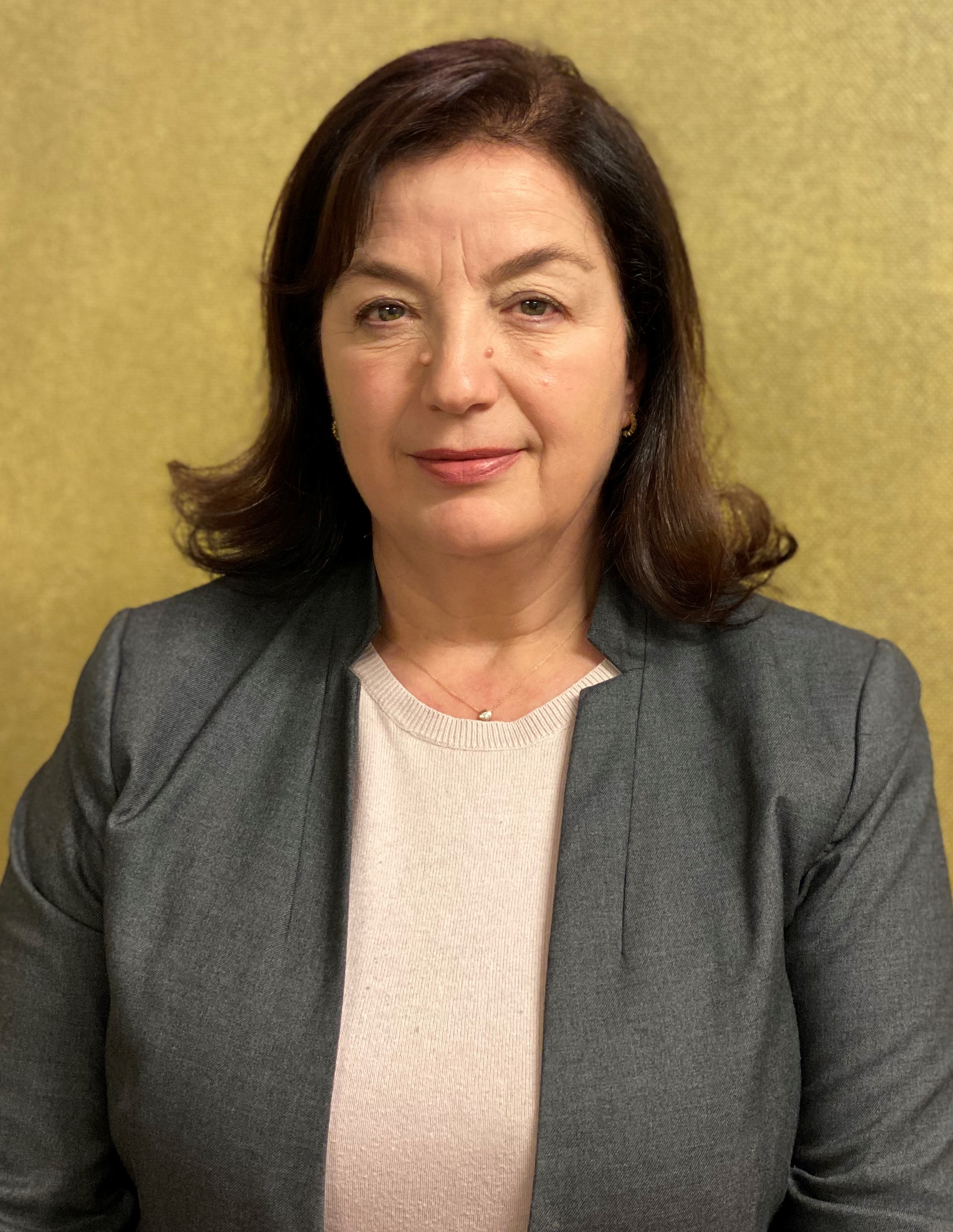
Elsa Dhuli
Director General, Institute of Statistics Albania (INSTAT)
Elsa Dhuli was appointed the Director General of Institute of Statistics Albania (INSTAT) in November 2020. She has 28 years of experience in the field of statistics. Previously, she was the Director of the General Directorate of Statistical Production and before that the Coordinator of Quality Statistics, Director of Economic Statistics. As co-chair of the National Commission on Classifications and now Chair, Elsa has led the implementation of the European Economic Classification and Product Classification in Albania since 1994. She also led the Census of Economic Enterprises in 2010 and contributed to drafting the Official Statistical Programme and Strategy of INSTAT. As a Quality Coordinator, she contributed to developing the strategy for the National Statistical System, Quality Guidelines, Access on Microdata Policy, and the Performance Assessment Framework.
She is the country coordinator for the e-GDDS platform (NSDP-IMF) for statistics and for the OECD - WB Regional for Competitiveness outlook report for statistics, member of the Monitoring Committee of the SEE 2020 strategy, a member of the Administrative Council of the Social Insurance Institute and negotiator for the Albanian EU accession representing Chapter 18 "Statistics".
She holds a Doctorate of Statistics from the University of Tirana, Faculty of Economics. Elsa also served as a member of the Programme Committee for the Third United Nations World Data Forum.
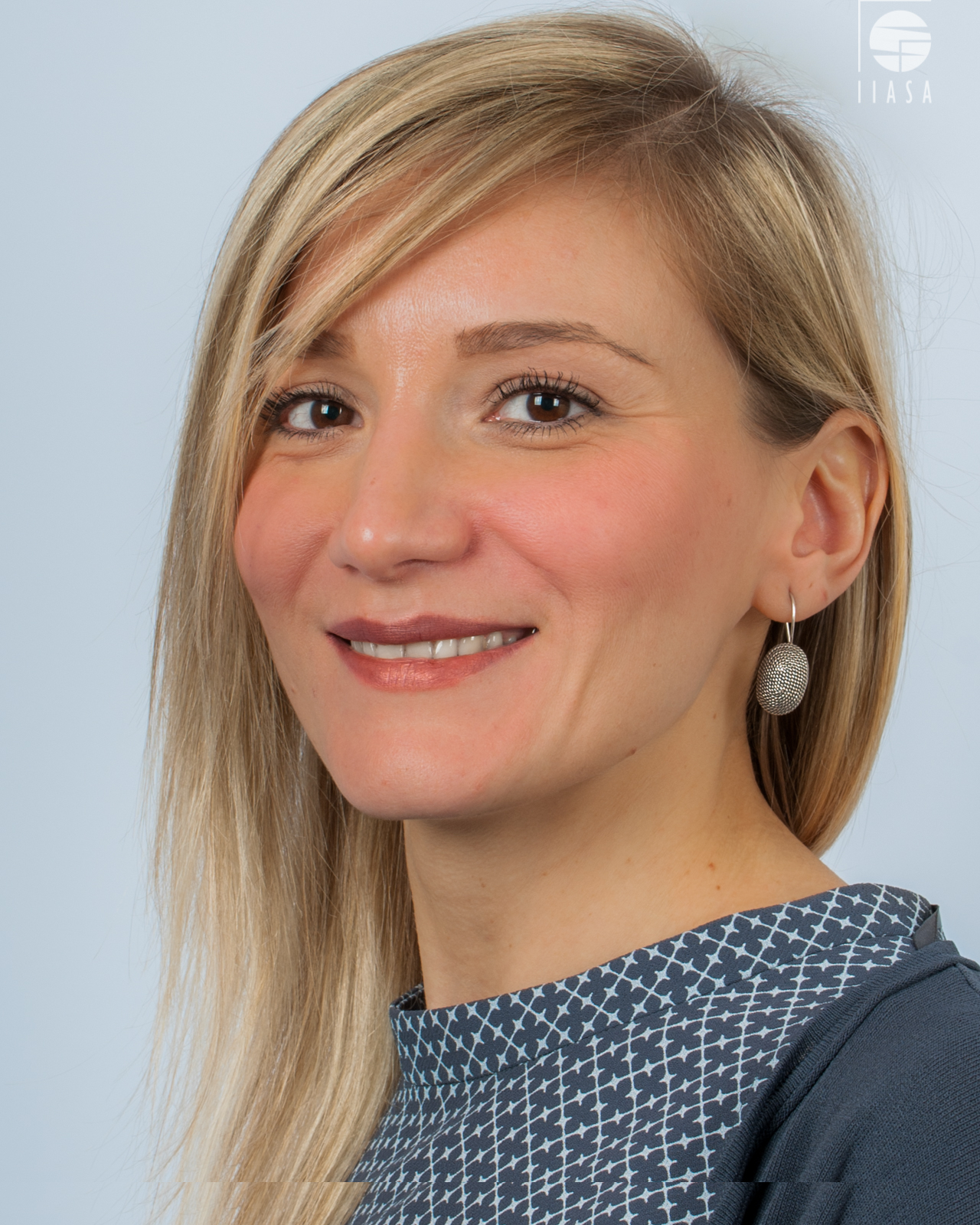
Dilek Fraisl
Research scholar, Novel Data Ecosystems for Sustainability (NODES) Research Group of the International Institute for Applied Systems Analysis (IIASA) Advancing Systems Analysis Program
Managing Director, Citizen Science Global Partnership (CSGP)
Dilek Fraisl is a research scholar in the NODES Research Group of the IIASA Advancing Systems Analysis Program. She has led and contributed to citizen science projects related to marine litter, land use and cover, and other environmental issues. She was the chair of the European Commission funded "WeObserve SDGs and Citizen Science Community of Practice". She has held board memberships with the Sustainable Development Solutions Network Thematic Research Network on Data and Statistics (SDSN-TReNDS), the UN Framework Convention on Climate Change (UNFCCC) Resilience Frontiers, the Group on Earth Observations (GEO), and the Global Citizen Science Partnership (GCSP). She is involved in the organizing committees and scientific advisory boards of several European and global conferences.
She has a Ph.D. in Sustainability Transitions from the University of Natural Resources and Life Sciences Vienna (BOKU) in Austria, a Master’s in Sustainable Development from the Catholic University of Leuven (KU Leuven) in Belgium, the University of Padua in Italy, and Universite Paris 1 Pantheon-Sorbonne in France.
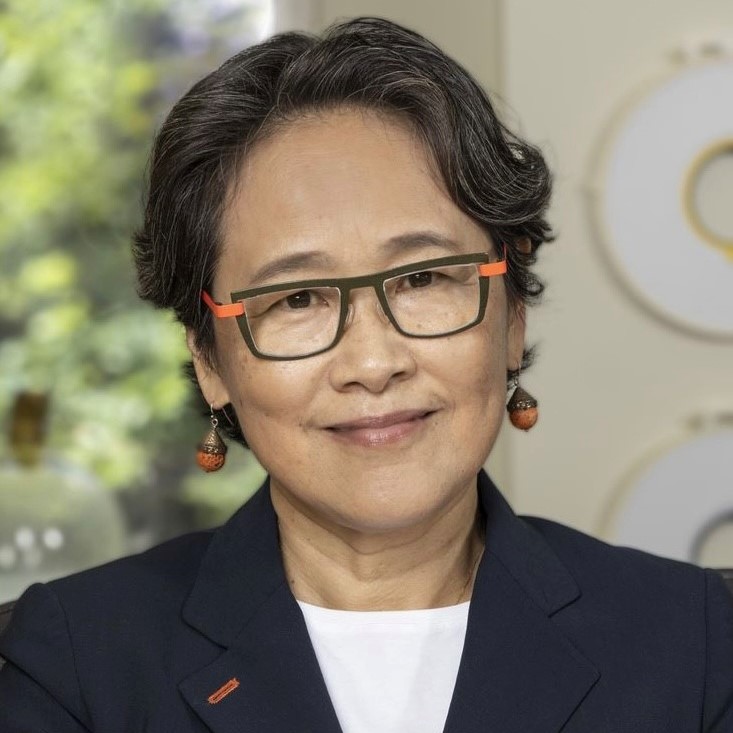
Haishan Fu
Chief Statistician, World Bank (WB)
Haishan Fu is Chief Statistician of the World Bank and Director of the World Bank’s Development Data Group. She is an active leader in the global data community, having served on the UN Secretary General’s Independent Advisory Group on Data Revolution for Sustainable Development, as Council Member of the International Statistical Institute, and as chair or member of the executive board or high-level advisory panel of various data-related initiatives.
Haishan is responsible for the World Bank’s development data agenda, including oversight of leading global data public goods and international statistical programs, technical advisory services to client countries, development data partnership between international organizations and private companies, and the World Bank-hosted Global Data Facility for financing data and statistical innovation and supporting transformation of national data systems.
Prior to joining the World Bank, Haishan led regional statistics development programs in Asia and the Pacific as Director of Statistics at UNESCAP, served as the first Chief of Statistics of UNDP’s Human Development Report, and worked as Senior Research Associate at the Guttmacher Institute, research collaborator at Princeton University and post-doctoral fellow at the University of Pennsylvania. Haishan holds a Ph.D. in Demography from Princeton University and a B.A. in Economics from Peking University.”
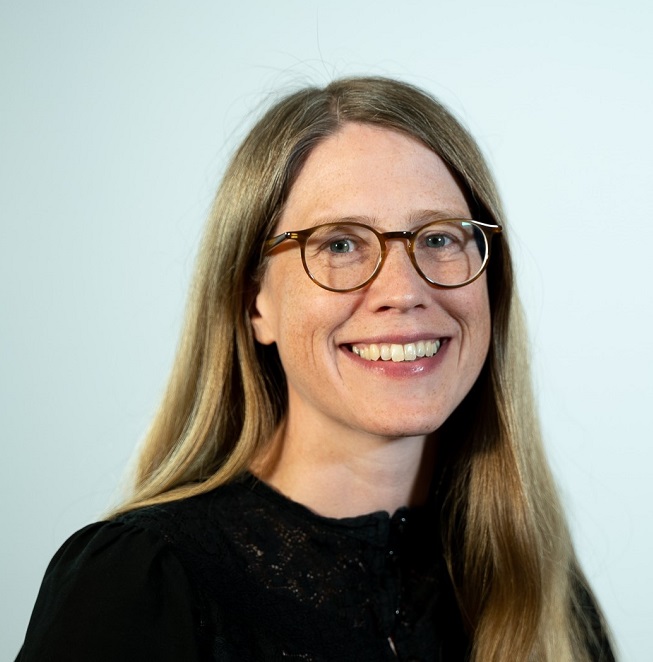
Reidun Gjengedal
Senior Adviser in Section for Governance and Transparency, Norwegian Agency for Development Cooperation (Norad)
Reidun Gjengedal is currently responsible for development of the cooperation programme on statistics and registers, which is incorporated in Norad's governance portfolio. Within the same agency, she has served as the head of the statistics section and has held positions in the Communication Department and the Department for Civil Society. Her primary duties have included producing and disseminating statistics on Norwegian Official Development Assistance (ODA), combined with international work regarding definitions and standards setting. Reidun holds a master’s degree in Human Geography from the University of Oslo combined with studies in Spain and Chile.

Xuming He
President, International Statistical Institute
Xuming He is the Inaugural Chair, Department of Statistics and Data Science, and Deborah Beckmann Kotzubei and Jacob Kotzubei Distinguished Professor at Washington University in St. Louis. Prior to his current appointment, he served on the faculty of the National University of Singapore, the University of Illinois at Urbana-Champaign, and University of Michigan, and worked as Program Director of Statistics at the National Science Foundation in the United States. He is an internationally recognized statistician who has published extensively his work on robust and trustworthy statistical inference, as well as his work’s application in biosciences, climate studies, and concussion research.
He is an elected Fellow of the American Statistical Association (ASA), the Institute of Mathematical Statistics (IMS), and the American Association for the Advancement of Science (AAAS). He is a past president of the International Chinese Statistical Association (ICSA) and has served on the Council of the IMS and the Board of Trustees for the National Institute of Statistical Science in the United States. He has also served as the Program Chair for the 59th World Statistics Congress of the International Statistical Institute.
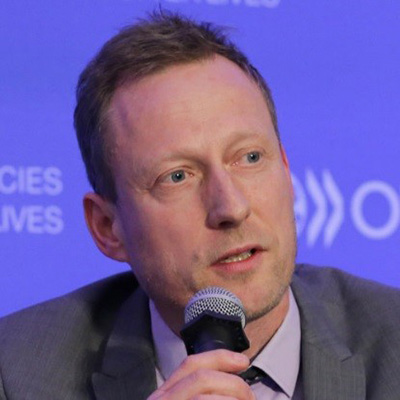
Johannes Jütting
Executive Head, Partnership in Statistics for Development in the 21st Century (PARIS21)
Johannes Jütting leads PARIS21’s work in strengthening national statistical systems, promoting the integration of statistics and reliable data in the decision-making process and advocating for countries as crucial actors in the global development agenda. Prior to joining PARIS21, Johannes led poverty reduction teams at the OECD Development Centre and at the Centre for Global Development Research (ZEF). Johannes holds a Ph.D. in Development and Agriculture Economics from Humboldt University and regularly publishes on issues relating to data, statistics, development and the Sustainable Development Goals.
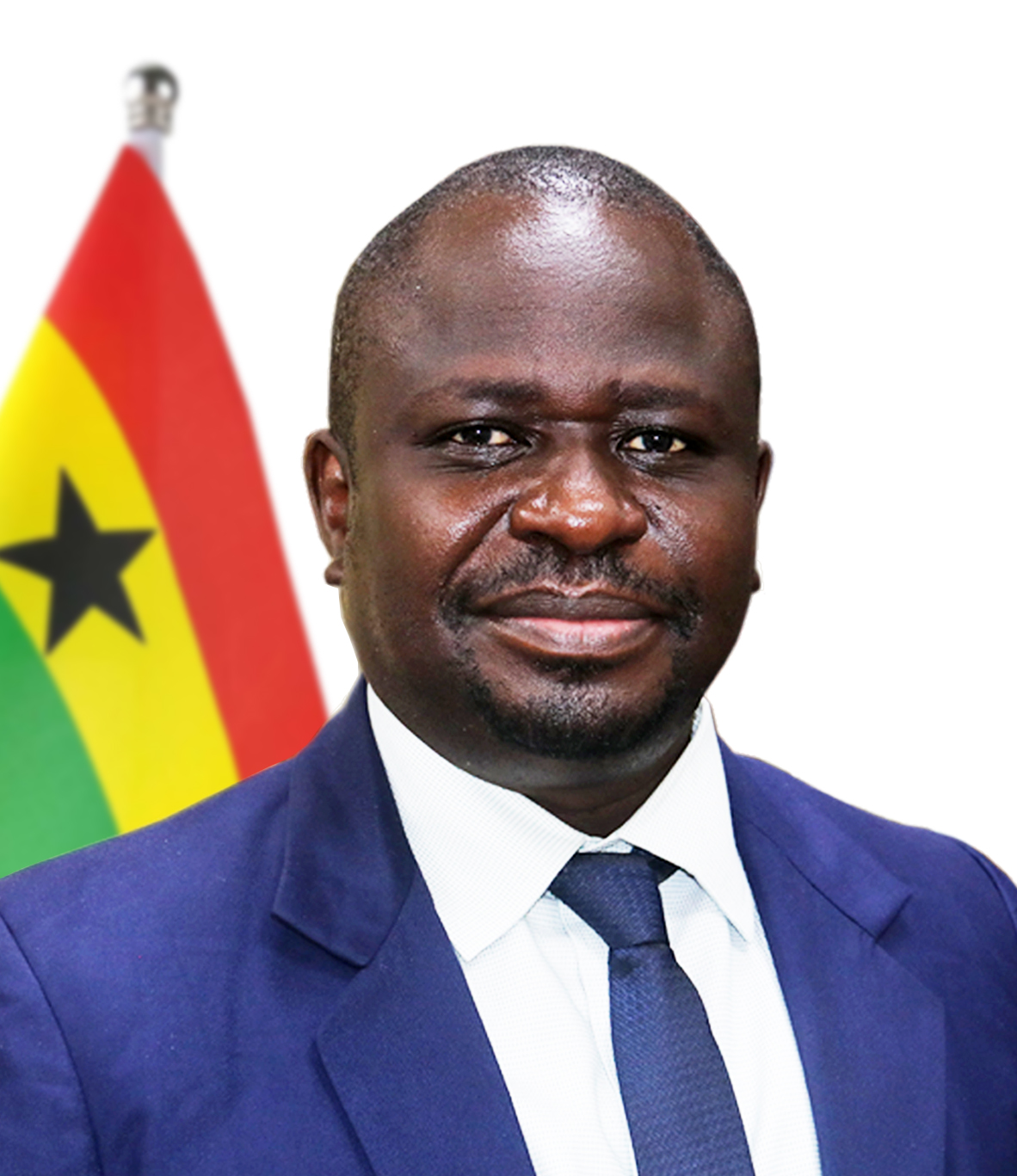
Samuel Kobina Annim
Professor of Economics ,University of Cape Coast Government Statistician, Ghana Statistical Service
Samuel Kobina Annim led the Ghana Statistical Service (GSS) in the development of a Five-Year Corporate Plan and new organisational structure, supervised the passing into law the Statistical Service Act, 2019 (Act 1003), promoted the development of a Data Quality Assurance Framework and positioned GSS to successfully conduct Ghana’s first digital census. He guided GSS to implement a first study on a national survey on the integrity of public services to provide internationally comparable measures of corruption and spearheaded the first national panel survey to provide quarterly labour and welfare statistics.
He has overseen the establishment of key strategic partnerships with other National Statistical Offices and organisations, including the Office for National Statistics - UK; Statistics Denmark, Vodafone Foundation and Flowminder to harness mutual capacities to improve key outputs.
He is dedicated to promoting knowledge transformation across the continent and passionately supports national and global development agendas by providing professional service to the academic community, the National Statistical System in Ghana, and several international bodies.
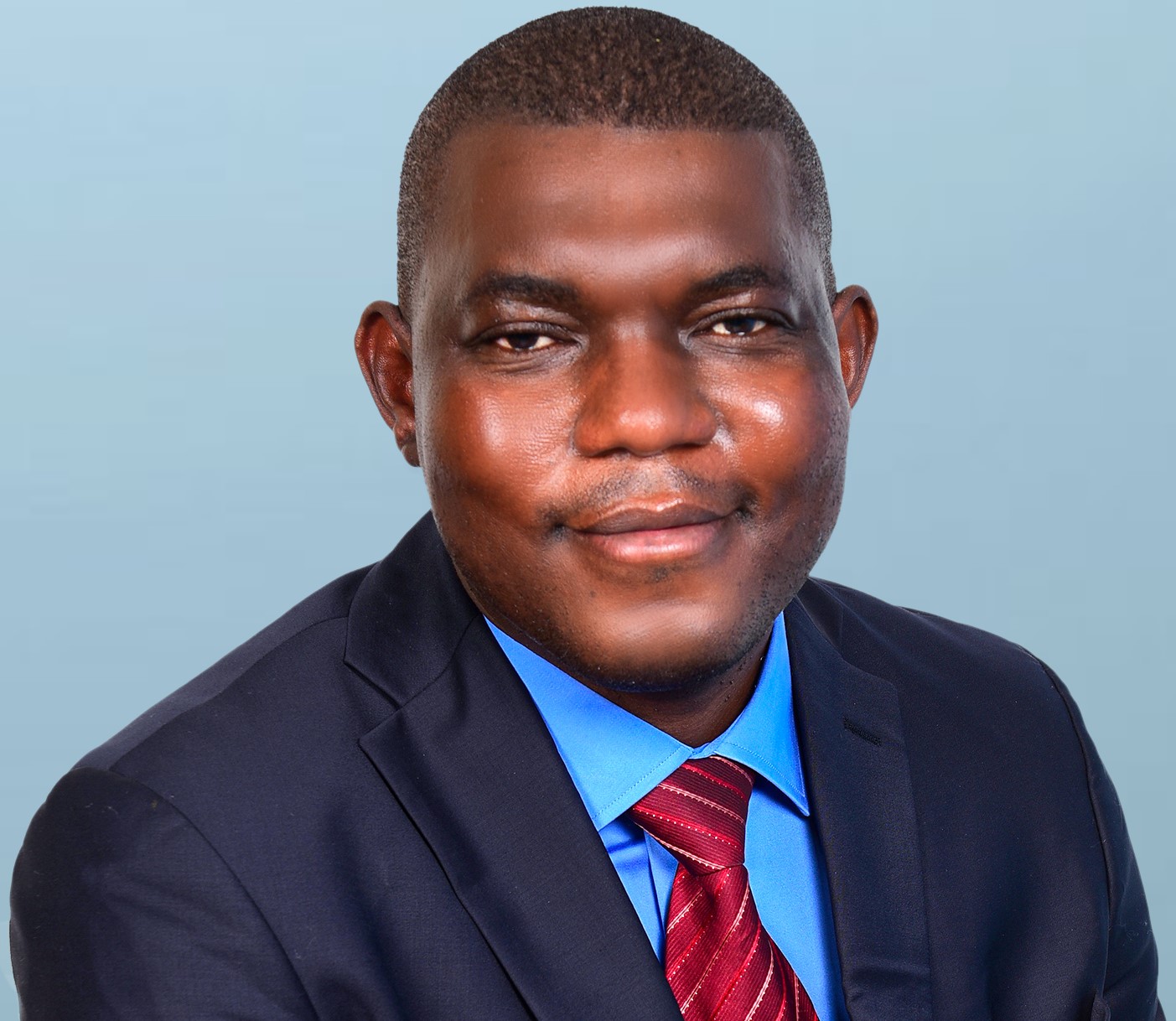
Charles Lebon Mberi Kimpolo
Director, Industry Initiative; Acting Director, Skills for Employability (SFE); Head, Next Einstein Forum (NEF) at the Global Network Secretariat of the African Institute for Mathematical Sciences – Next Einstein Initiative (AIMS-NEI)
Charles Lebon Mberi Kimpolo leads the implementation of AIMS’ Work Integrated Learning programs to develop new industry needs-driven capacity development programs while supporting students and alumni in their transition to employment. His goal is to further African economic advancement by strengthening AIMS-NEI until it is the industry’s leading academic partner on the continent. He is a member of the Technical Advisory Group (TAG) of the Global Partnership for Sustainable Development Data.
He founded the Young African Technologists (YAT), an organization promoting education through technology in underprivileged African communities. During his 2-year stay in India, Charles supported African students through the Knowledge Sharing Campaign (KSC), which he founded to empower the African student diaspora and reverse brain drain. He holds a Ph.D. in Computational and Applied Mathematics from the University of the Witwatersrand, Johannesburg in South Africa.
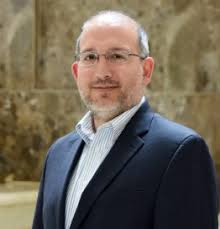
José Antonio Mejía Guerra
Institutional Capacity of the State Division,Inter-American Development Bank (IDB)
Works as Modernization of the State Lead Specialist at the Inter-American Development Bank (IDB), where he specializes in strengthening of statistical capacity.He served as Vice president of the first Governing Board of Mexico´s National Statistics and Geography Institute (INEGI) between2008 and 2012. Before that he worked at the IDB where he coordinated the MECOVI Program.
He holds a master´s degree In Public Policy form Georgetown University and a master´s degree in Economics from George Washington University.

Claire Melamed
Chief Executive Officer, Global Partnership for Sustainable Development Data (GPSDD)
Dr. Claire Melamed is the CEO of the Global Partnership for Sustainable Development Data. This growing network brings together several hundred members -- governments, private sector, and civil society -- to harness and leverage data and data technology towards achieving the Sustainable Development Goals. She was previously Managing Director of the Overseas Development Institute, and in 2014, she worked in the office of the UN Secretary General, writing the report of the Independent Expert Advisory Group on the Data Revolution, “A World That Counts”.
Claire is based in London and heads up a global team based in ten countries. Claire is an Affiliated Researcher at the Bennett Institute for Public Policy at the University of Cambridge and serves on a number of Boards and advisory groups for institutions including the UK Office of National Statistics Data Science Campus, Full Fact, and Mo Ibrahim Foundation Governance Index.
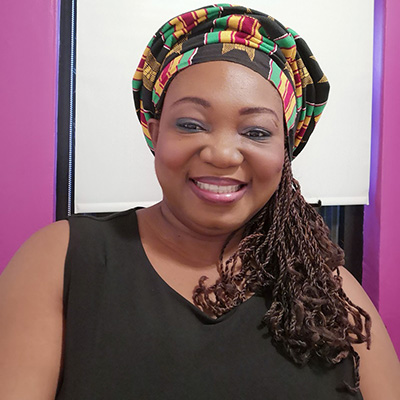
Nnenna Nwakanma
Board Member, International Digital Health and AI Research
A Diplo alumnus, an ICT4D Strategist, an expert in eParticipation and Citizen Engagement, Nnenna Nwakanma advocates for policy and systemic changes that are needed for meaningful internet access, open data, open government and the open web across Africa, bringing together local and international stakeholders to advance the digital agenda. She is one of the early pioneers of the Africa Data Revolution, a respected voice in the UN’s Internet Governance Forum, a pioneer and continued advisor on internet governance in Africa, and Faculty at the Schools of Internet Governance.
She has over 15 years of experience working with the United Nations Systems in human rights, information society, gender, data digital equality and sustainable development. She recently co-founded The Free Software and Open Source Foundation for Africa and previously served as a board member of the Open Source Initiative. She has lived and worked in five African countries and is fluent in English, French and a number of African languages.
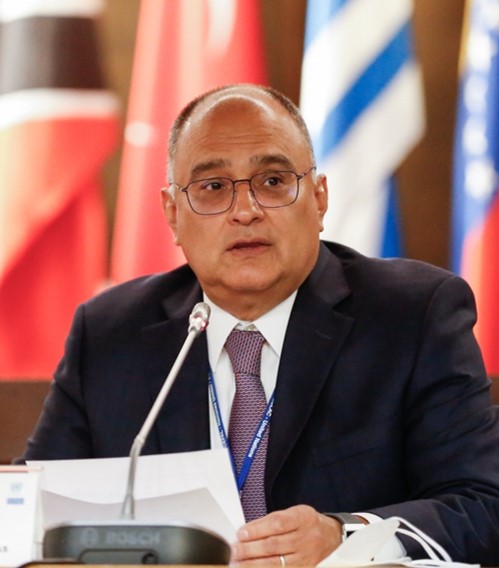
Rolando Ocampo Alcántar
Director,Statistics Division of the United Nations Regional Commission for Latin America and the Caribbean (ECLAC).
With over 35 years of experience in the field of statistics, Rolando Ocampo has dedicated his career to promoting the use of statistical and geospatial information for decision-making and public policy.
Rolando has been a significant figure in the history of the National Institute of Statistics and Geography of Mexico (INEGI) at various points in time. From 2013 to 2017, he served as a member of the INEGI's Governing Board as Vice President. During this period, he chaired the United Nations Regional Committee on Global Geospatial Information Management for the Americas (UN-GGIM: Americas) and co-chaired UN-GGIM Global in 2016 and 2017. Additionally, he is a member of the International Statistical Institute (ISI).
He holds a degree in Actuarial Sciences from the National Autonomous University of Mexico, a Master's in Statistics from the Complutense University of Madrid, and a Master's in Economics of Education and Labor from Carlos III University of Madrid.
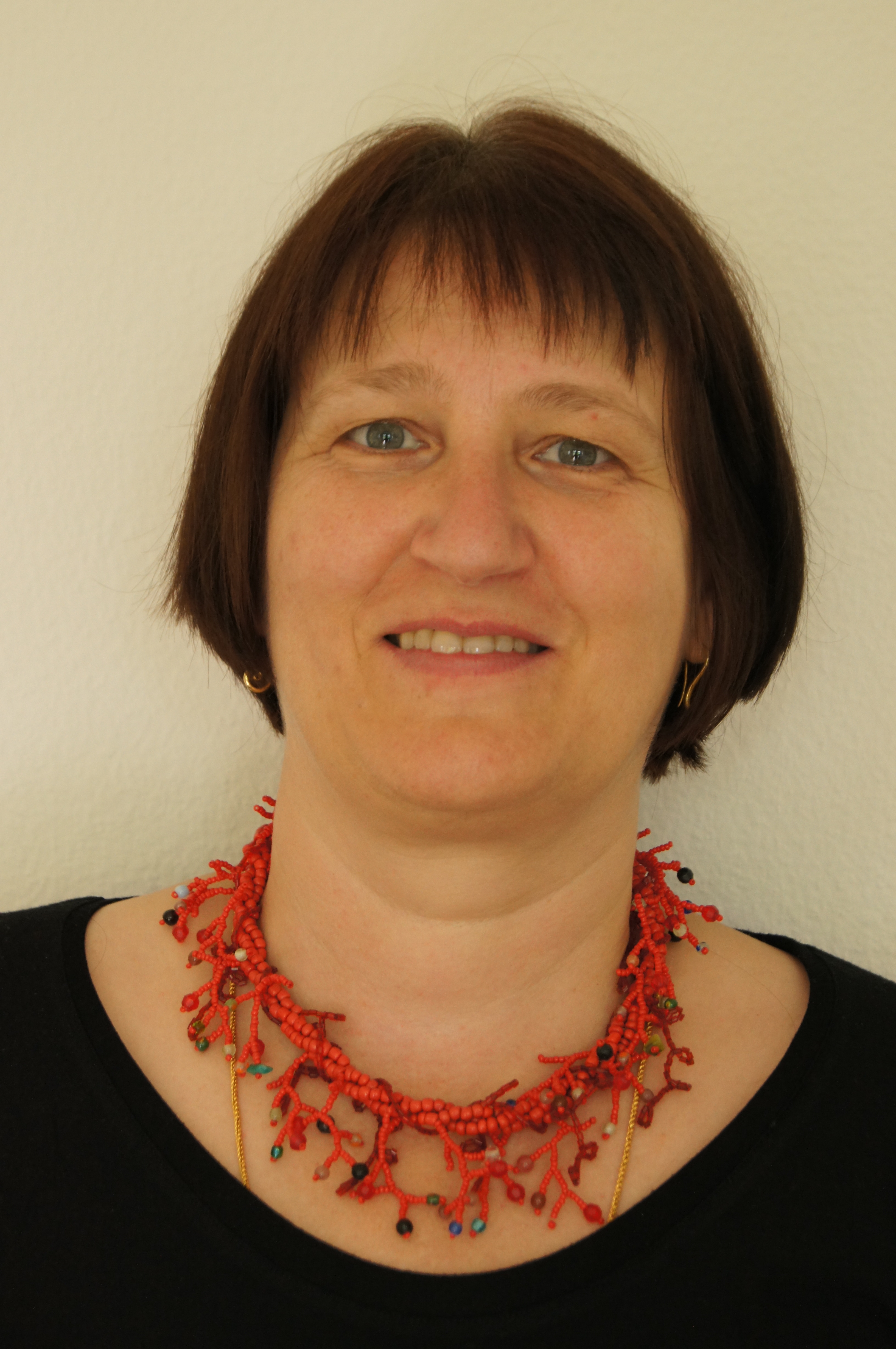
Andrea Ries Padmanabhan
Senior Advisor, Swiss Agency for Development and Co-operation (SDC)
Andrea Ries Padmanabhan is the Senior Advisor for Development Effectiveness leading work on “Effective Support to Statistical Capacity and Data” and supporting the Swiss Co-Chair of the Global Partnership for Effective Development Co-operation (GPEDC). She has worked for the SDC since 2003 and has held various positions; including working on policy in the multilateral division and as head of the Food Security division. Previously she oversaw the methodology of the labor survey in the Federal Office of Statistics of Switzerland, as well as environmental economics and environmental standards at the World Wide Fund for Nature (WWF) and worked for the World Bank in Social Development. She holds degrees in mathematics, applied physics and sociology.
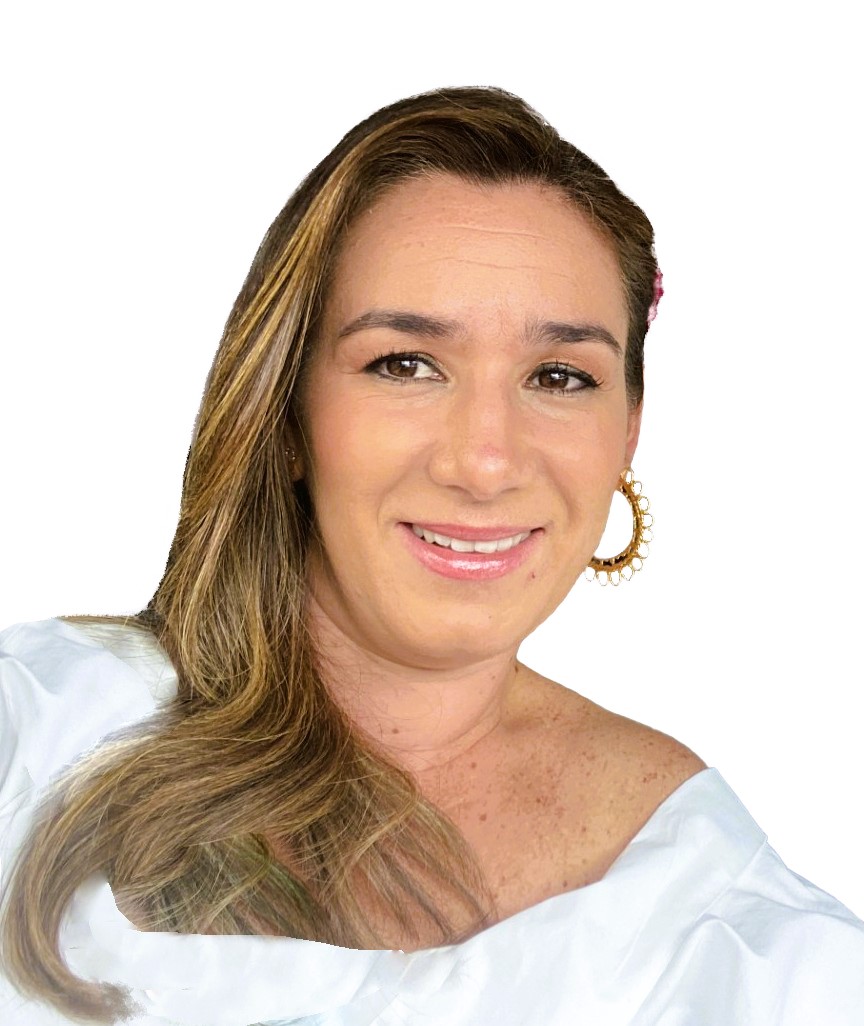
Catalina Restrepo
Director, Corporate Solutions MAKAIA
Psychologist and Bachelor of Education with more than 10 years of experience in educational projects, youth leadership, and social transformation. Convinced that education is the way to close the gap of inequality in the world.
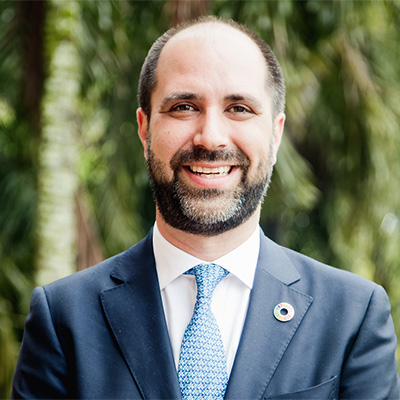
Philipp Schönrock
Director, Cepei
Philipp Schönrock founded Cepei in 2003, a data-driven think tank, working through field-based analysis and high-level advocacy to scale up the participation of Latin America and the Caribbean within the global development agendas. Over the past years, he has been part of numerous initiatives: he was the co-chair of Beyond 2015, and currently serves as a board member of Together 2030 and Core Women and of the Partnership in Statistics for Development in the 21st Century (PARIS21). He is also a member of the Technical Advisory Group of the Global Partnership on Sustainable Development Data (GPSDD) and the SDSN Thematic Research Network on Data and Statistics (SDSN-TReNDS). In 2018 he was a visiting Fellow at the German Institute for International and Security Affairs (SWP).
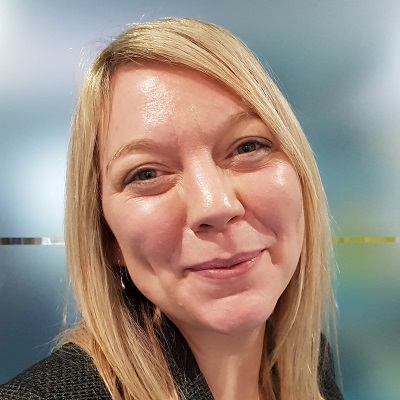
Claudia Wells
Managing Director for Civil Registration and Vital Statistics, Vital Strategies
Claudia Wells leads implementation and operations of the Vital Strategies Civil Registration and Vital Statistics program under the Bloomberg Philanthropies Data for Health Initiative. She oversees a large multi-country effort strengthening the counting of births, deaths and causes of death in 17 low-and middle-income countries around the world, enabling country governments to collect and use their own data for policy and practice. She has over 20 years’ experience working in the field of data for development, research and statistical production. Prior to joining Vital Strategies, she was Director of Data and Evidence and Director of the International Hub at Development Initiatives where she led work to understand and address the critical barriers to data use. Before joining the data for development sector, she was Head of Sustainable Development Goals and Environmental Statistics at the United Kingdom’s Office for National Statistics where she was responsible for developing new data and analysis for a wide range of users, from informing the everyday decisions of the public, to working across government providing robust evidence for policymakers.